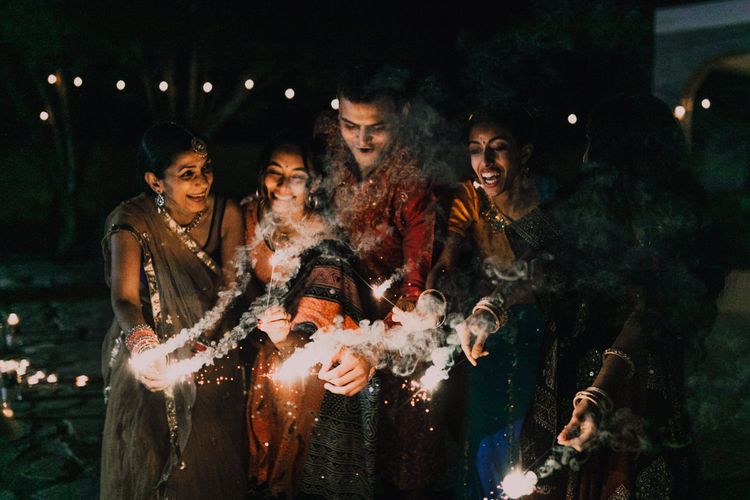Green Diwali Lights the Way - Earth Day

Representing the triumph of light over darkness, Diwali is a Festival of Light celebrated in Hinduism, Jainism, and Sikhism. Typically, celebrations span several days, with candles and lanterns decorating homes with a vibrant glow. Firecrackers of varied types heighten the celebratory mood.
Diwali symbolizes a different history and value for each faith group celebrating the day. Hindus observe the festival welcoming God Rama home after a victorious war. In Jainism, it marks the anniversary of the liberation of Mahavira’s soul. To Sikhs, it commemorates the release of Guru Hargobind from imprisonment, symbolizing triumph over oppression.
Each religion celebrates with different forms of worship and variations of treats and festivities. However, the common practice for all is the display of fireworks.
Don’t Light It Up Just YetWhy? Because although fireworks might make for a captivating and joyous way to mark Diwali, bursting them comes at a price.
The chemicals and smoke resulting from the explosion of these over a concentrated period contaminate both the water and the air, leading to short- and long-term respiratory and cardiovascular problems. Post-Diwali, elevated levels of greenhouse gasses regularly prevalent are a cause of severe concern. Moreover, animals experience excessive short-term stress from the loud noise and disorienting brightness. The polluting particles also make their way into their habitats, causing long-term environmental issues.
Children, who are taught about climate change, have taken the lead to protest against burning firecrackers that traditionally are made using chemicals and instead demand for greener ways to celebrate Diwali with firecrackers that cause less pollution.
Taking cognizance of this, in 2017, the Supreme Court of India banned the use of certain fireworks in some regions during Diwali. It is great that in 2023, we see multiple Indian States impose similar bans. For example, only eco-friendly fireworks – Green crackers – are permitted. These fireworks, created by the Council for Scientific and Industrial Research, have a reduced negative impact: they are 30% less polluting, lack many polluting components (such as aluminum, barium, and potassium nitrate), and a lower sound level with decibels of 110-125 versus the usual 160.
Gopal Rai, the Minister for Environment in the Government of Delhi, announced that the Supreme Court set a blanket ban on using all types of fireworks in Delhi during Diwali and throughout the winter. “[Fireworks] turn the city into a gas chamber,” he said as he shared the news in September. He hoped the early announcement would curb sales, storage, and manufacturing of all kinds of fireworks. Disregarding the regulations will result in consequences, anywhere from a penalty fee to jail time.
West Bengal State has also restricted the use of fireworks during this period. Green crackers are the only permitted fireworks allowed and any fireworks sold that aren’t labeled “green” are illegal and banned.
Knowledge Triumphs over IgnoranceIndia’s transition from traditional modes of celebration to more climate-conscious alternatives pays perfect homage to the key values of Diwali — knowledge over ignorance. It is clear that as levels of environmental education improve, so does environmental stewardship.
EARTHDAY.ORG’s team in India is actively working to promote climate awareness all year round and recently published a handbook for teachers titled “What is Climate Change? Innovative Ways to Engage Students.” This aims to boost climate education and literacy among students so that they take on the mantle of stewardship for the environment from a young age.
Karuna Singh, Earth Day Network India’s Director, speaking about the handbook, said, “The ebook has lessons on how to use simple, readily available tools such as art, music, and stories to discuss and celebrate climate education and environmental awareness. The ebook shares ideas and lesson plans for teachers to create hands-on projects that spark enthusiasm in students of all ages. With free guides like this, climate education enhances student understanding, empowering them to make informed decisions and feel they have a part to play in caring for the world around them.”
India’s climate education resources and green fireworks initiatives exemplify how we can all transform traditions to serve the planet better. Increasing awareness of how our actions impact the environment should inspire us to transition to greener alternatives where we can.
This is much more likely to happen when there is a strong foundation of climate education to build on, and EARTHDAY.ORG is committed to being a part of this process and creating this foundation.



























































